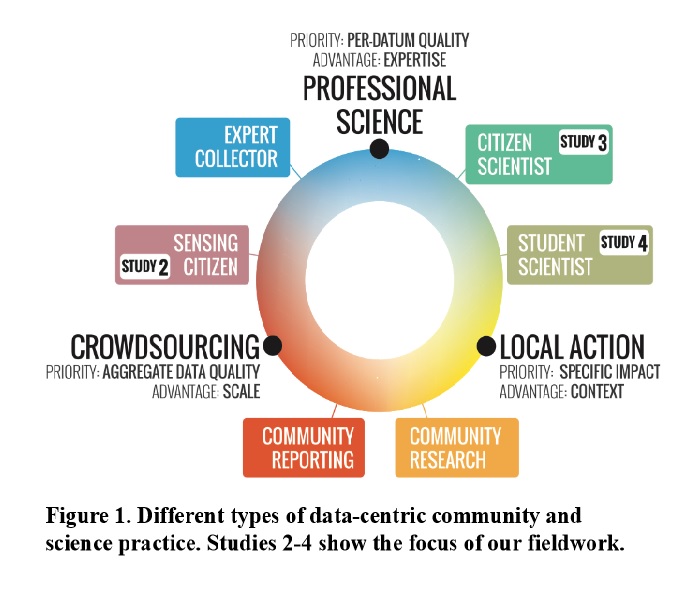These computing researchers took a critical look at the current practice of citizen science with the goal of informing the development of tools and technologies. They asked two seemingly simple questions: what drives people to participate, and what are productive ways for people to participate? In the analysis, I particularly like the nuanced understanding of the space that they developed, describing the complex multi-dimensional tradeoffs that must be made and the types of bottom-line impacts those decisions have on both participants and science. Ultimately, the authors recommend applying different design principles for three “ideal types” of project designs, which are readily recognizable through parallels to numerous other citizen science typology papers. — AW, Guest Editor
Excerpt: “An early focus on generalizable research – notably, on infrastructure for collaboration and data collection, things that computing research does well – risks losing sight of some of the particulars of citizen science as it is actually practiced. Such efforts often overlook: (1) the behavioral motivations of citizens to contribute to particular environmental causes, (2) the capacity of citizens to participate in activities necessary to a meaningful scientific campaign, and (3) the alignment of technologies with the ultimate goals of the collective scientific effort.”
Abstract: In this paper we consider various genres of citizen science from the perspective of citizen participants. As a mode of scientific inquiry, citizen science has the potential to “scale up” scientific data collection efforts and increase lay engagement with science. However, current technological directions risk losing sight of the ways in which citizen science is actually practiced. As citizen science is increasingly used to describe a wide range of activities, we begin by presenting a framework of citizen science genres. We then present findings from four interlocking qualitative studies and technological interventions of community air quality monitoring efforts, examining the motivations and capacities of citizen participants and characterizing their alignment with different types of citizen science. Based on these studies, we suggest that data acquisition involves complex multi-dimensional tradeoffs, and the commonly held view that citizen science systems are a win-win for citizens and science may be overstated.

Figure 1. Different types of data-centric community and science practice. Studies 2-4 show the focus of our fieldwork.
Source: Aoki, P., Woodruff, A., Yellapragada, B., Willett, W., 2017. Environmental Protection and Agency: Motivations, Capacity, and Goals in Participatory Sensing. Proceedings of the 2017 CHI Conference on Human Factors in Computing Systems, 3138-3150. DOI: 10.1145/3025453.3025667.